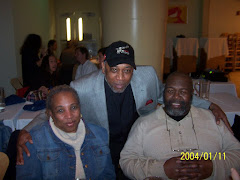 "Anthony Pollina is one of the founders of the Vermont Progressive Party. He has been our standard bearer, running for statewide office as a Progressive twice before.”
"Anthony Pollina is one of the founders of the Vermont Progressive Party. He has been our standard bearer, running for statewide office as a Progressive twice before.”- Progressive Party Website
The announcement by Anthony Pollina, a Vermont Progressive Party leader running for governor, that he will appear on the ballot this fall as an Independent raises intriguing questions about the reasons for his switch and the future of the movement he leads in the Green Mountain State. At a news conference on July 21, Pollina said that running as an independent “is by far the best way” to build a coalition. He didn’t mention winning, but that clearly also figured into the decision.
In making the announcement, Pollina mentioned US Senator Bernie Sanders and his predecessor Jim Jeffords, noting that both were embraced as Independents. However, Sanders became an Independent in the late 1970s after several disappointing runs for statewide office as a third party candidate. At the time, he said that the timing wasn’t right for a new party. Sanders served four terms as Burlington mayor and eight as a US Congressman before running for the US Senate in 2006. He ran as an Independent in all those races.
Jeffords, on the other hand, was a life-long Republican, serving in the US House and Senate. He left the GOP in 2001, citing deep differences with the Republican leadership and the Bush administration. It turned out to be his last term, and there’s no way of knowing how Vermont voters would have responded had he attempted to run for re-election as an Independent.
Pollina’s reasons are obviously different. He has devoted many years to building Vermont’s Progressive Party, and declined to enter the Democratic primary earlier this year, saying that he had no intention of running as anything but a Progressive. “You know, I’m a Progressive,” he told columnist Peter Freyne. “I’m not going to leave the Progressive Party to become a candidate of another party.” Doing so “would undermine people’s faith in me and also in the process,” he added, “and I wouldn’t be too surprised if there were Democrats who would accuse me of being opportunistic in switching parties.”
Now that he’s announced his intention to switch his ballot status from Progressive to Independent, Democrats are doing exactly that. “This is about opportunistic decision-making,” Democratic Party Chair Ian Carlton told the Burlington Free Press. Taking Pollina at his word, the reasonable conclusion is that he remains a Progressive, but has decided that running on the party line will reduce his chances of winning. The presence of Progressive Party Executive Director Martha Abbott at his side for the announcement, and her statement that “most Progressives will support his decision,” makes it clear that running as an Independent is a tactical choice.
Pollina also told Freyne, “The idea of leaving one party to join another party for political purposes does not go along with my own principles.” Technically, he hasn’t done that, but running as an Independent does suggest that he feels his Party could hold him back. It also could make it harder for the Party to retain its Major Party status, which requires at least one candidate to win at least five percent of the vote. The Vermont Progressive Party has yet to announce a candidate for any other statewide office.
Pollina actually entered statewide politics as a Democrat, winning the Democratic primary for US Congress in 1984 but losing to incumbent Jeffords. He didn’t run again for 16 years, but was Senior Policy Advisor to Congressman Sanders for five years during the 1990s. He subsequently advocated for campaign finance legislation that established public funding for statewide political campaigns. In 2002, when his campaign for Lt. Governor failed to qualify for public funding, he filed suit in federal court to overturn the law.
Running for governor as a Progressive in 2000, Pollina received 9.5 percent in a crowded field led by Republican Ruth Dwyer, with 37.9 percent, and incumbent governor Howard Dean, who won with 50.4 percent. Two years later, Pollina ran for Lt. Governor, again as a Progressive, receiving 24.8 percent of the vote in a three way race, behind Democrat Peter Shumlin, with 32.1 percent, and Brian Dubie, who won with 41.2. That year, Michael Badamo, running as a Progressive without much support from the Party, got only .6 percent in a race won by the current governor, Jim Douglas.
In 2004, Peter Clavelle, who was in the midst of his last term as Burlington’s Progressive Mayor, returned to the Democratic Party and challenged Douglas’s bid for re-election. Douglas won with 57.8 percent, and Clavelle received 37.9. The Progressive Party didn’t field a candidate for governor that year, or in the 2006 race.
Given this background, it’s easy to see why Pollina has made the switch. A politician identified as a Progressive but running as a Democrat would have some difficulty convincing elements of that party that he or she wasn’t switching teams just to get elected, while running as a Progressive would limit appeal to the state’s many independent voters. As Pollina told Vermont Public Radio journalist Bob Kinzel, a number of independent voters “feel that party affiliation is a liability.”
By running as an Independent, therefore, Pollina hopes to build on his Progressive base, possibly as high as 25 percent, attracting voters who have no allegiance to the other two major parties. If he’s successful, the chances increase that neither Democratic challenger Gaye Symington nor Douglas will get 50 percent of the vote. If that happens, Vermont’s
Traditionally, the lawmakers go with the person who receives the most votes – but they aren’t required by law to do that. Vermont Democrats have a 60 vote edge in the state legislature, not counting the six Progressives and two Independents in the House of Representatives. If Symington, who is Speaker of the Democratically-controlled House, comes in first or a close second, the legislature might choose her over Douglas. But if Pollina manages to beat them, even by a few votes, he will undoubtedly argue that picking anyone else would be undemocratic. He could, at least theoretically, create that situation by getting no more than 34 percent.
Progressive Chair Abbott’s endorsement indicated that the Party’s leadership is backing his play. As Pollina argues, they apparently don’t want to let a label get in the way of possible victory. But the Progressive Party’s leadership has misjudged the voters in the past. In the 2006 Burlington mayoral race, Clavelle and other leading Progressives backed Democrat Hinda Miller to succeed him, assuming that a Progressive candidate couldn’t win. The Party ran a candidate anyway and, in part due to instant run off voting, Progressive Bob Kiss defeated Miller and their Republican opponent.
The question raised by Pollina’s decision is what’s more important, continuing to build a strong party or possibly winning a race. More than 30 years ago Sanders made that choice, and has held office in Vermont almost continuously since 1981. Although he remains the unofficial head of the state’s progressive movement, he has never joined its party and doesn’t feel obliged to follow any party line. At times he has been criticized for not doing enough to help build support for an alternative to the Republicans and Democrats.
Pollina’s loyalty to the progressive movement runs deep, and he is more likely to draw from his Party’s base for ideas and personnel if he does pull off a political upset. However, by the time November rolls around most voters may realize that he is actually an Independent in name only. It’s a bold move; aside from Sanders, no Independent candidate has ever won statewide office in Vermont. But if the tactic fails to dramatically increase Pollina’s appeal, the consequences for the future of his Party could be severe.































No comments:
Post a Comment